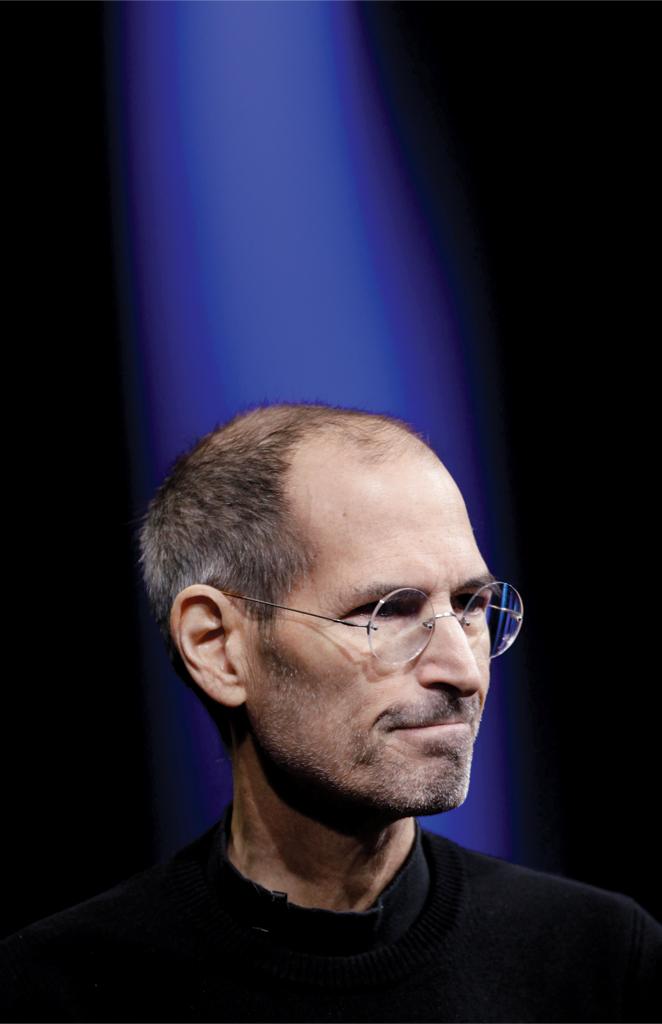
The death of Steve Jobs, the former CEO and a co-founder of Apple Inc., resulted in an outpouring of emotion and praise for his life and achievements from around the world.
Apple announced Jobs’ death Wednesday night and remembered him as a “visionary and creative genius.” The company announced no cause of death, but Jobs had been diagnosed with a rare pancreatic cancer seven years ago and had a liver transplant in 2009. He was 56. The company did not release any details about Jobs’ funeral; a spokesman said there would be no public services.
On Thursday, the Apple website, which usually features slick presentations of multicolored iPods and ever-thinner MacBook laptop computers, simply displayed a black-and-white photo of Jobs, thumb and finger to his beard as if in contemplation.
For more than 30 years, Jobs has been at the forefront of computer and creative technology innovation. His company’s products, including the iPod, iPhone and iPad, have revolutionized the ways millions of people interact with personal electronic devices.
Many Binghamton University students said they were saddened by Jobs’ death because they feel a special connection to Apple technology which plays a big role in their lives.
“It is the passing of a titan,” said Jake Tobol, a senior majoring in human development. “He contributed some of the most progressive innovations in this day and age.”
Several echoed Tobol.
“I strongly believe that he was one of the most influential men of our time,” said Joe Aloise, a senior majoring in industrial and systems engineering. “I can guarantee you can’t name 10 CEOs of … other companies.”
Dennis Foreman, a computer science professor, said computers were originally a tool used by scientists and other professionals, but that Jobs and Steve Wozniak, Apple’s other co-founder, made computers user-friendly.
“He took the concept of a computer and made it an everyday appliance,” Foreman said. “I think he changed the way we look at computers.”
Kelly Abbate, a sophomore majoring in art, said she admired Jobs’ accomplishments and especially enjoyed listening to his famous 2005 Commencement speech at Stanford titled “How To Live Before You Die.”
“Remembering that I’ll be dead soon is the most important tool that I have ever encountered to help me make the big decisions in life,” Jobs said in the 2005 speech. “Remembering that you are going to die is the best way I know to avoid the trap of thinking that you have something to lose. You are already naked, there is no reason not to follow your heart.”
Across the country, admirers who turned his technological marvels into everyday tools used them as instruments of grief. People held up pictures of candles on their iPads, booted up their MacBook Pros to watch old Jobs presentations on YouTube and used their iPhones to sift through remembrances on Twitter.
“He was a genius,” Rosario Hidalgo said outside an Apple Store on the Upper West Side of Manhattan while her daughter, 21-month-old Carlotta, used an iPhone to play an app that teaches children to match animal sounds to animal pictures.
“It’s like the end of the innovators,” said Scott Robbins, 34, who described himself as an Apple fan of 20 years and who rushed to an Apple Store in San Francisco when he heard the news.
After Jobs resigned as CEO of Apple in August, the position was given to his second-in-command, Tim Cook.
Foreman said he thinks Apple will continue to be a successful business and technology pioneer under Cook’s leadership.
“I’ve seen how things change, technology will continue to advance,” Foreman said. “It is not dependent on one person.”
— Information from the Associated Press was used in this report.


